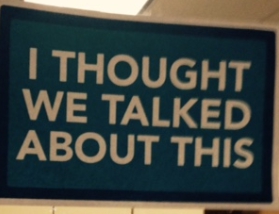 In most of my articles and posts I describe how to execute practices that help build a collaborative organizational culture. For the next 5 weeks I will be posting two Cultural Practices per week that define the 10 Cultural Practices that will cost you time, money, and talent.
In most of my articles and posts I describe how to execute practices that help build a collaborative organizational culture. For the next 5 weeks I will be posting two Cultural Practices per week that define the 10 Cultural Practices that will cost you time, money, and talent.
I WOULD LIKE YOUR HELP – PLEASE OFFER YOUR FEEDBACK ON THESE PRACTICES.
If you find a practice that you have experienced in a culture that you have been part of – I would love to hear your comments. If you find the concept interesting, please share the post with a business acquaintance, or better yet, add the post to your LinkedIn and/or Facebook page.
FOCUSING ON PEOPLE’S ATTITUDES, NOT THEIR BEHAVIORS
In most organizations, there is always someone with what others would define as a “Bad Attitude.” The person or people that have this bad attitude are always viewed as the problem and we spend time trying to find ways to improve their attitude, which we believe will improve their behaviors. Defining core behaviors and focusing on positively managing those behaviors will create better attitudes. In fact, if behavioral expectations are well-understood and modeled by leadership, the team will self-manage the people with attitude problems, or the people with bad attitudes will leave on their own.
Focus on behavior expectations, not on attitudes.




